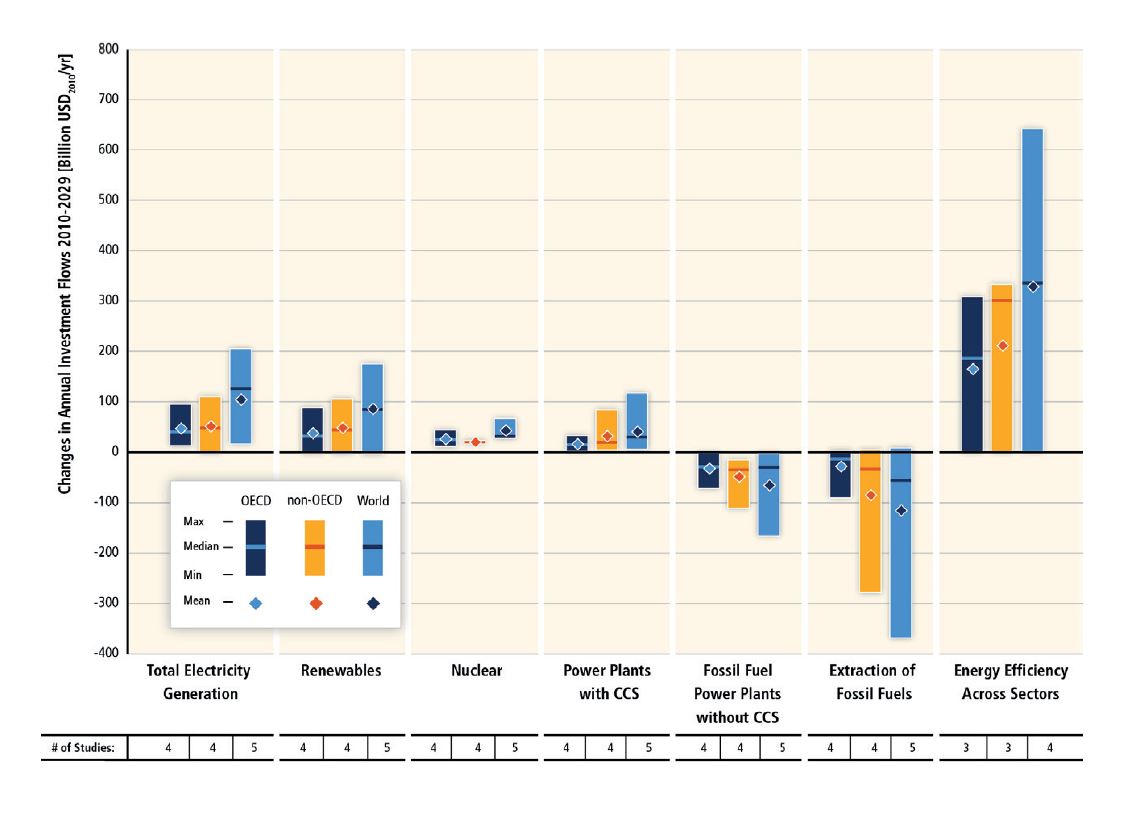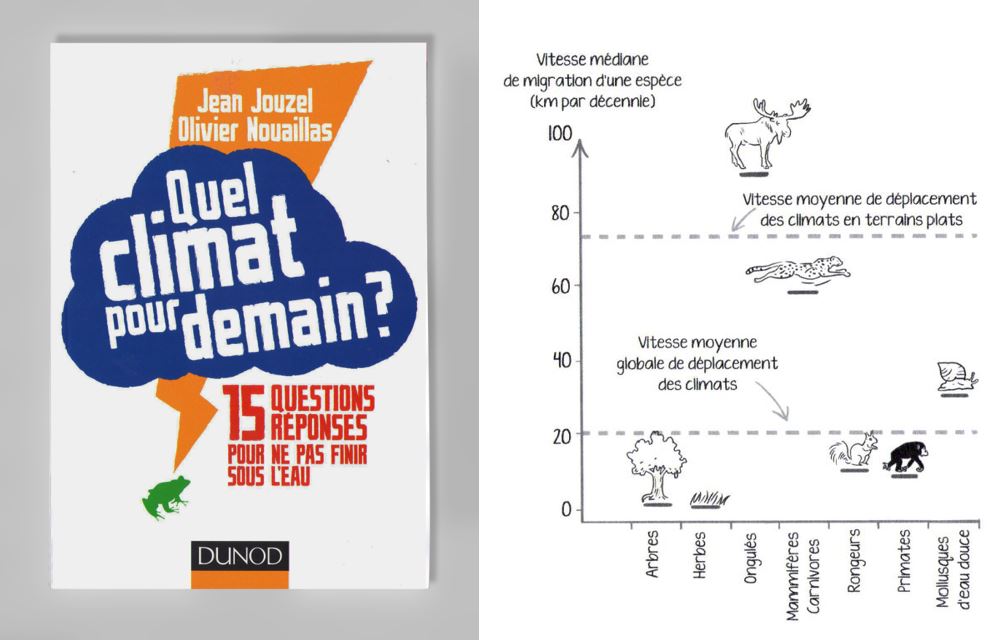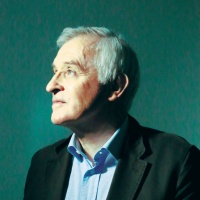INTERVIEW
Sustainability MAG : You are a paleo-climatologist, a “climate historian”. When was the last time it was so warm on earth?
Jean Jouzel : With near certainty, I can say that 125,000 years ago there was a period in which it was 1 to 2 degrees warmer than today but similar temperatures can probably be found in more recent periods such as 8 to 10,000 years ago. But the earth, throughout its history, has always been warmer than it is today. The earth’s history stretches over 4.6 billion years and its climate has always changed. There have been warmer periods than today and there have been colder periods than today, where the world transformed itself into a snowball. Of course, there have been periods where temperatures were considerably higher, in a completely natural way though. We know for example that 50 million years ago the deep waters were 10 degrees warmer than they are nowadays.
"It is the human activity that is behind the current composition of the atmosphere"
What is unusual about the recent evolution of temperatures?
That is the right question to ask. Climate changes and will always change. This natural variability exists in all the different time-scales, but for the last 10,000 years we have been in a relatively stable period. However, for the past 200 years, the human activity has disturbed this stability and has led to a strong and accelerated global warming. 20,000 and 12,000 years have passed since the Last Glacial Maximum and the earth has warmed up by 4 to 5 degrees on average, now however, it is heating up 50 to 100 times faster!
We are living in a world where the human activity has impacted the composition of the atmosphere. Throughout the past 200 years, the amount of carbon dioxide in the atmosphere has increased by more than 40%, methane has multiplied by 2.5 and nitrous oxide has risen by more than 20%. Thus, it is indeed the human activity that is behind the current composition of the atmosphere. This compositional shift translates into an increased greenhouse effect, that is, a rise in the available heat to warm the climate system components. The more we heat, the more we logically expect temperatures to increase, which is what is happening right now.
We are entering the Anthropocene Era…
Officially we’re still in the Holocene era, according to the Commission responsible of defining the geological eras, but in practice, yes, we have entered the Anthropocene Era. The idea is that, through their activities, humans influence the composition of the atmosphere, the climate and more generally the other factors of its environment. I think that Paul Crutzen’s approach within this context is very relevant. He defines the entry in the Anthropocene Era as the first observation of the increase of carbon dioxide concentrations since the beginning of the 19th century, a phenomenon that is itself linked to the emissions of the steam engine, the use of coal.
Some people think that a two degree temperature increase is not that important… What does it really imply?
I think that the temperature rise is indeed discernible, while for a long time I said that this increase was not yet dangerous for our regions, I start to see its impacts. Summers such as in 2003, where in Europe alone there have been 70,000 deaths, cannot be ignored. The forest fires that broke out in Portugal in June are clearly linked to global warming. These precocious, dry and warm summers, are favourable for the propagation of fires.
We can see it already today; global warming is dangerous. In the future, with just one more degree Celsius, we have to expect a different climate. Even with a contained global warming, we will inevitably witness a 50cm rise in the sea level by the end of the century. Furthermore, we have to expect an increase in the frequency and intensity of natural disasters, severe rainfalls, longer droughts, cyclones… Heatwaves will become more and more serious with record-breaking temperatures.
source: http://news.nationalgeographic.com/news/2007/07/070705-antarctica-ice.html - CIRED
The Vostok ice core findings - Thanks to climate condition in Antarctica, layers of snow and ice pile up, year after year, catching in the process traces of the atmosphere in bubbles. The past evolutions of the drivers of the climate system are reconstructed using these ice cores. Yet, all the reconstructions show with a very high confidence that greenhouse gases are linked to the observed cycles, and that today’s levels of these gases exceed those of the last 800.000 years, with 390ppm for CO2 and 1803ppb for CH4 in 2011.
What are the temperature peaks that can be expected in Luxembourg by the end of the century?
Following one of the latest studies, we have to expect record temperatures of 55 degrees in the East of France and in Luxembourg. This reflects a scenario where no action is taken to fight global warming at all.
Beyond these direct impacts, you have also noticed that global warming jeopardizes our food production?
Globally, within the next decade there will be regions that will lose or gain productivity. But by the end of the century, the losing regions will clearly outweigh the others / winners. If we look at the whole of humanity, it is losing. But even more generally, we find that the planet is losing too. It is losing when we look at its diminishing biodiversity. There are whole species that are threatened/endangered. We know that half of the fauna and flora species have adaptation and migration capacities that cannot keep up with the speed of global warming. The difficulties are obvious.
In your publication “Quel Climat Pour Demain” (What a climate for tomorrow), you claim that “the sixth animal mass extinction is happening”, which is a very strong statement…
That is what the biodiversity specialists are saying. And generally, when they mention this, they are not even including global warming. What they tell us is that it is not only humanity that is affected by this, we are currently killing our environment. It is true for wildlife species but also for domestic animals. With temperatures higher than 50 degrees we might have to air-condition stables, which is quite frightening. Global warming unnecessarily exacerbates all environmental problems: loss in biodiversity, pollution, water resources, food security but also other problems such as security in its own.
In your publication “Quel Climat Pour Demain” (What a climate for tomorrow), you claim that “the sixth animal mass extinction is happening”, which is a very strong statement…
That is what the biodiversity specialists are saying. And generally, when they mention this, they are not even including global warming. What they tell us is that it is not only humanity that is affected by this, we are currently killing our environment. It is true for wildlife species but also for domestic animals. With temperatures higher than 50 degrees we might have to air-condition stables, which is quite frightening. Global warming unnecessarily exacerbates all environmental problems: loss in biodiversity, pollution, water resources, food security but also other problems such as security in its own.
"Quel climat pour demain ?" by Jean Jouzel and Olivier Nouaillas.
So that is the true significance of the Nobel Peace Prize that you have collectively received as Vice President of the IPCC scientific group...
Yes, this is the profound meaning of this award given to the IPCC and Al Gore in 2007. That recognition highlights the principle that, if we don’t act against global warming, it will be difficult to maintain a harmonious development of our civilisations. On the opposite, fighting against this phenomenon, will require action by us all and therefore it is a sign of peace.
You were closely associated to the COP21 in January 2015, what are your views on the Paris Agreement? Have the great hopes been dampened by the recent retreat announcement of the United States?
Opposite to the Kyoto and Copenhagen Agreements, the Climate Convention has not set clear country goals but has invited the nations to put forward their own contributions. I was in the French preparation committee for the COP21, alongside with Laurent Fabius, who was extremely pessimistic at the beginning. He doubted that the countries would come up with their own suggestions because there were no (legal) obligations. But in reality, it worked very well, except for Syria and Nicaragua. All countries from around the world have contributed, that is what makes this agreement a universal agreement.
However, the drawback is that the contributions are not in line with the 2 degree objective. Even with the set commitments, we still have excess emissions of 40% for 2030. This will take us to a 3 if not 3.5 degrees temperature rise by the end of the century. That’s a real problem. That’s where we would like to discuss the Paris Agreement and where we would have to ask the different States to do even better. And that’s where the retreat of Trump becomes extremely damaging. If the second highest emitting country in the world leaves the agreement, we don’t have a universal agreement anymore.
Credit: GRIP
Jean Jouzel cutting ice in the scientific trench.
The scientific contributions were key to the Climate Convention. On April 22 of this year, the International Science March coincided with Earth Day, exposing signs and banners saying “Science serving the common good”, “Science not silence”. This highlights a committed science…
I often say that in a certain way the IPCC reports are eminently political, in the proper sense of the term, that is we are trying to be “policy relevant”. Yes, there is a political dimension to our scientific work. We serve the policy-makers in a way that puts the scientist at the heart of citizenship. We try to interact with the wider public, with schools as well. I just came back from a symposium on global warming education in the world, on how we can make scientific evidence more accessible to the general public and youth rather than the numerous “fake news”.
The solutions that have been put forward vary largely, from the simplest, such as energy efficiency, to the most remarkable solutions. Which initiatives do you think deserve encouragement?
The first step is energy efficiency, to consume less energy while doing the same activities. Beyond this, I think that the fight against climate change requires a certain simplicity, such as to renounce to certain activities as they consume too much energy.
If we break down emissions we find that the first biggest source of pollution is linked to carbon dioxide gas, hence to our use of fossil fuels. If we wish to remain below 2 degrees, we must renounce to more than 80% of the accessible fossil fuels. This will imply a complete transformation of our society. Furthermore, there are 20% of emissions that are linked to agricultural practices, methane, nitrous oxide. There again, a transformation of the model will be necessary. Talking about innovation, obviously, what will have to develop on a global scale are renewable energies.
Finally, if we want to remain below 2 degrees by the end of the century, we need negative emissions, in other words, we need to reduce the amount of CO2 in the atmosphere. The envisioned solution is to grow biomass and to use this as an energy source to simultaneously trap CO2 within the process. But for the moment, this is purely theoretical. Even the entrapment and storage of carbon dioxide hasn’t really passed the pilot phase.
In that respect, what do you think about the initiative currently undertaken by the Luxembourgish government who has announced that it will officially commit the Third Industrial Revolution and will carry out a post-carbon transition?
I have listened to Jeremy Rifkin and I have seen what he tried to do in Northern France. I think that the idea of aligning economic development with ecological and environmental respect is the only way we can move forward. You have to understand that a climate of +4 or +5 degrees, roughly speaking, is a world in which it will be harder to live in. If we attain a population of 10 billion people within the second half of this century, which is likely to happen, there is a risk of increasing inequalities. This means that, while the one billion people that are rich enough will always find a place to live well, the rest of the world will live in terrible conditions. It’s this increasing inequality, not just at the global level but also at the national level, that is at the heart of the global warming issue.
"It is a true challenge, but a challenge that can be quite exciting if it is addressed early enough"
Beyond the state level, what is your key message to businesses?
It is not just a message for businesses, but also for young people. There are tremendous opportunities regarding innovation, not only on the technological scale but also in the social sphere, on an organisational level. There are so many things to do. It is a true challenge, but a challenge that can be quite exciting if it is addressed early enough.
It will be the countries and businesses that will be involved in developments that keep pace with the fight against global warming and its adaptations that will be economically ahead. It will be the pioneers that will win. It won’t be easy in the short term, they need a true vision and confidence in the future. However, in the medium and long run, I bet that it will be ecologically but also economically rewarding.
Let’s do some prospecting… What will the situation be like in 10 years time? Will it have progressed? Are you optimistic?
From the scientific point of view, I hope that we will have progressed. As of now, the IPCC has started its 6th cycle. Uncertainties remain in many fields with regards to the calculations and impacts. For instance, questions about rising sea levels or the behaviour of the ice caps, El Nino’s rhythm, as well as questions around weather extremes. On the solutions’ side, of course I hope that we will have made a lot of progress especially in my domain, in fundamental research, many questions remain to which our scientific community has to answer in order to facilitate political decision making.
Investment sector: Winners and losers of climate change

Climate policies consistent with the 2°C objective are expected to induce a major reallocation of investments towards energy efficiency and renewable energies. Annual investments in low carbon power production may double by 2030 while those in fossil fuel extraction could be reduced by several hundred billion of dollars.
Source : CIRED
Investment sector: Winners and losers of climate change

Climate policies consistent with the 2°C objective are expected to induce a major reallocation of investments towards energy efficiency and renewable energies. Annual investments in low carbon power production may double by 2030 while those in fossil fuel extraction could be reduced by several hundred billion of dollars.
Source : CIRED
When will the next IPCC report be published?
The next complete report will be published in 2021-22 but there will be intermediary reports until then, with a special report on “A World at 1.5°C” already being published next year.
is a French glaciologist and climatologist, he acted as Vice President of the scientific group IPCC from 2002 to 2015 He is co-recipient of the Nobel Peace Prize in 2007, as Vice-President of the IPCC. In 2012, he was awarded the Vetlesen Prize, considered equal to the Nobel Prize in the field of Earth and Universe Sciences. Member of the French preparation group of the COP21, he is an advisor at the ESEC.






